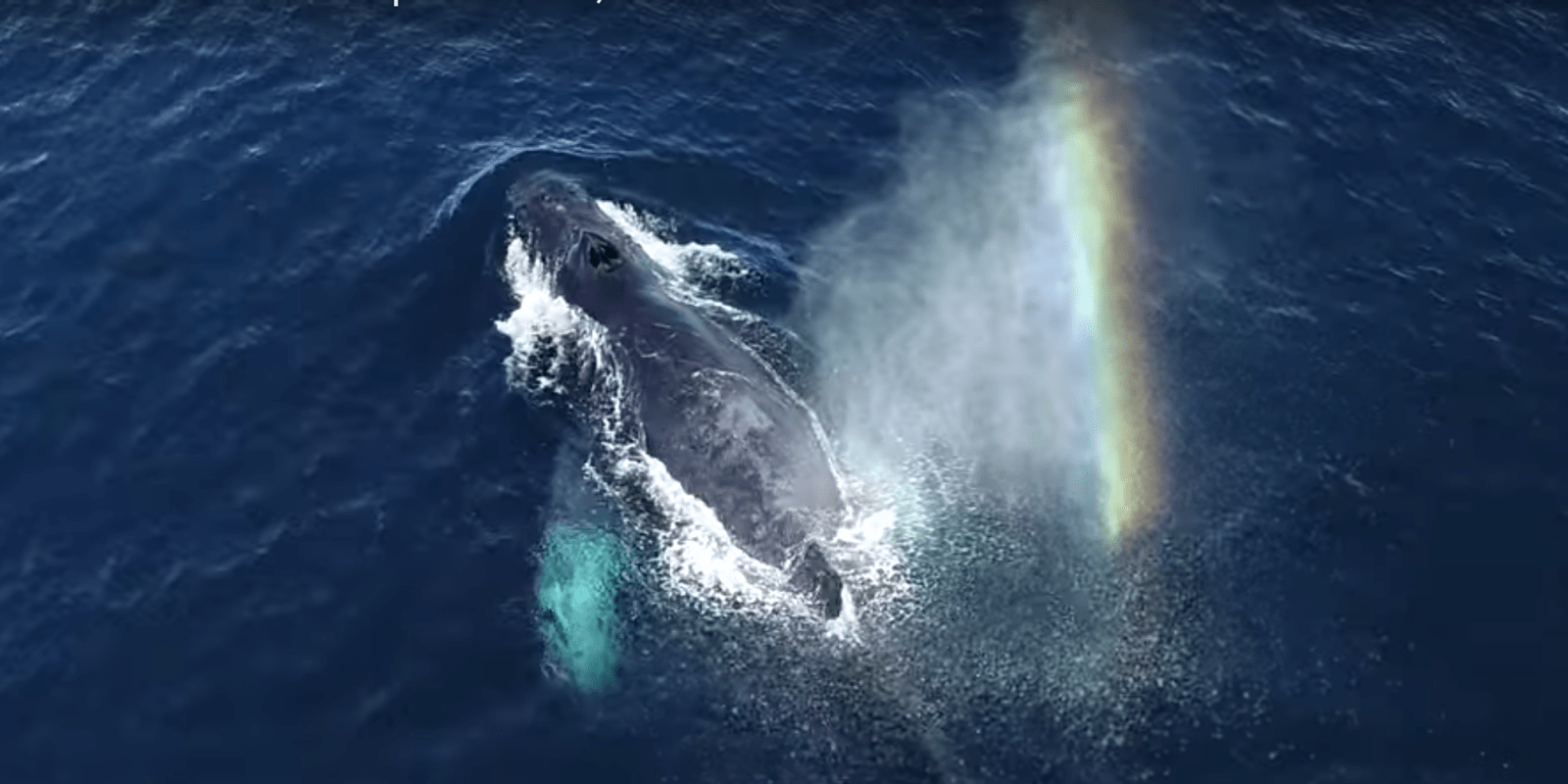
Environmentalists in Iceland are working on an innovative (though somewhat sticky) research project from the skies. Crews in sailboats dispatch drones above breeching whales to catch snot discharged from their blowholes to learn if rising tourism levels are stressing them out.
Spray-catching drones help measure whale stress amid rising tourist outings
Environmental group Whale Wise has undertaken the effort in Skjálfandi Bay, on the north side of Iceland, to see if the growing number of boats taking tourists on whale watching trips is having adverse effects on the mammals. To do so, members wait for one of the creatures to rise, then fly their DJI craft overhead. Eventually, the whale’s breathing process forces a geyser of air, water, and various sorts of matter upwards, where the drone swoops in with petri dishes to capture the mucky mist. Analyses of that will permit researchers to determine the sea titan’s altering stress levels.
Christened with the charming name “Snotbot,” drones flying to collect whale spray to measure changing environmental and health conditions is not new. The technique was first tried about a half decade back, and is now a regular part of monitoring the health of the mammals around the world. It is, however, the first time the craft have been deployed that way in Iceland, and Skjálfandi Bay in particular.
Whale Wise says Skjálfandi Bay may be the best whale watching spot in Europe, due to both the diversity of marine life and the long, mostly clear days of summer that far north. The group says visitors are nearly certain to see at least one whale or dolphin during each outing, which in part explains the increasing number of tourists flocking to the area.
But even observation from a respectful distance can disturb the creatures. Previous research has shown an uptick in boat traffic, and the noises that creates, can result in short-term disruption of whales’ feeding habits. And with the number of whale-watching tourists in Iceland having tripled in the past decade, experts want to see what kind of impact that’s having on resident marine life.
To measure stress levels, Whale Wise stocks up on lots of patience and waits. When a whale finally rises to blow spray, the group’s first drone swoops in to collect the falling mist.
Once boats ferrying tourists in arrive, a second sample is taken – if and when the whale spouts again. Once protected and frozen, those containers of spray are sent to labs for analysis that compare differing levels of hormones that rise when the creatures are stressed.
Thus far, Whale Wise has collected 59 samples. Though experts say a minimum of 50 are required to establish reliable comparative readings, the group hopes to up their count to 100 before they wrap the project up.
Ever conscientious, however, the group has also done homework on how its drones may bother their spray-spouting subjects.
Though the craft are kept high enough to remain out of a whale’s direct vision, Whale Wise has tested whether sounds made by its Phantom 4, Mavic Pro, and Inspire 1 drones might be audible and stressful to the creatures. It turns out the craft can indeed be heard from below the water’s surface, but group members believe that to be minimal enough to permit them to “drone over the whales with as little impacts as possible.”
.
FTC: We use income earning auto affiliate links. More.



Comments